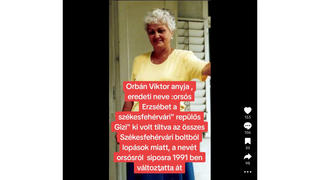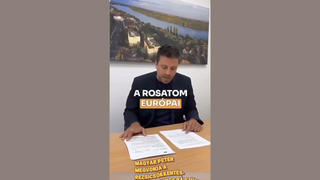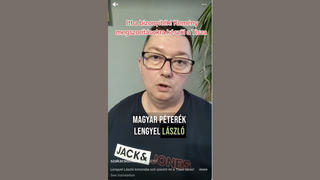
Did Budapest pledge that by 2030, its residents will refrain from consuming meat or dairy products, abstain from car ownership, limit annual clothing purchases to three new items, and restrict air travel to once every three years, with a maximum distance of 1500 km? No, that's not true: Instead, Budapest committed to halving its carbon emissions by 2030.
The claim appeared in a TikTok video (archived here) which was published by ayuk1553 on 23 August 2023 under the title:
Budapest is on the list too! These cities (1143 at the moment) pledged that its residents will obey these rules by 2030:
0 kg meat consumption!
0 kg dairy product consumption!
3 new pieces of clothing per person per year!
0 privately owned cars!
1 flight in every 3 years (shorter than 1500 km) per person!
Translated from Hungarian by Lead Stories Staff.
This is what the post looked like on TikTok at the time of writing:
(Source: TikTok screenshot taken on Mon Aug 28 17:13:02 2023 UTC)
The source of the screenshot is the website of the Cities Race for Zero (C40) initiative. C40 is part of the UN's Race to Zero global campaign aiming to halve emissions by 2030.
Cities seeking collaboration don't need to enforce regulations on the dietary, travel, or clothing preferences of their citizens. However, their commitment entails:
- Acknowledging the pressing climate emergency,
- Dedication to curbing worldwide temperature escalation below the 1.5°Celsius goal of the Paris Agreement,
- Committing to putting inclusive climate action at the center of all urban decision-making,
- Vowing to attain carbon neutrality, either by the 2040s or sooner, or by mid-century at the latest, in line with global efforts to limit warming to 1.5°Celsius.
- Set an interim target to achieve in the next decade, which reflects a fair share of the 50% global reduction in CO2 by 2030 identified in the IPCC Special Report on Global Warming of 1.5°Celsius,
- Report progress annually.
The capital city assembly announced a Climate Emergency in 2019 and pledged to push down carbon emissions to 40% by 2030 and become carbon-free by 2050 as part of its own climate strategy












